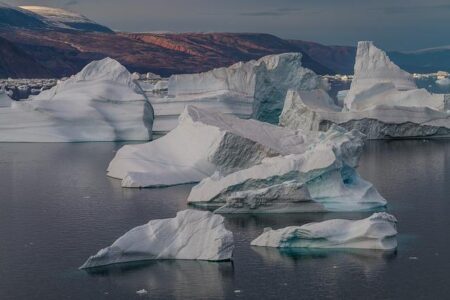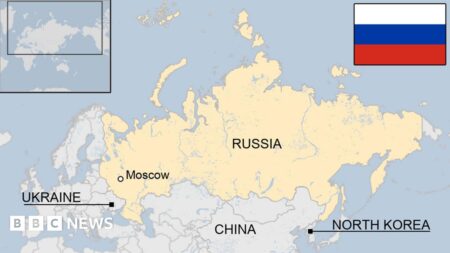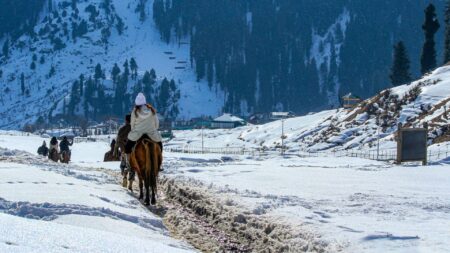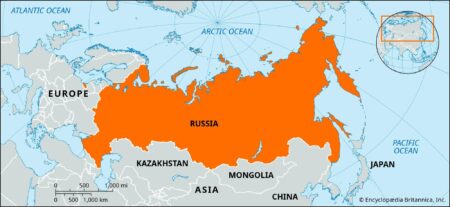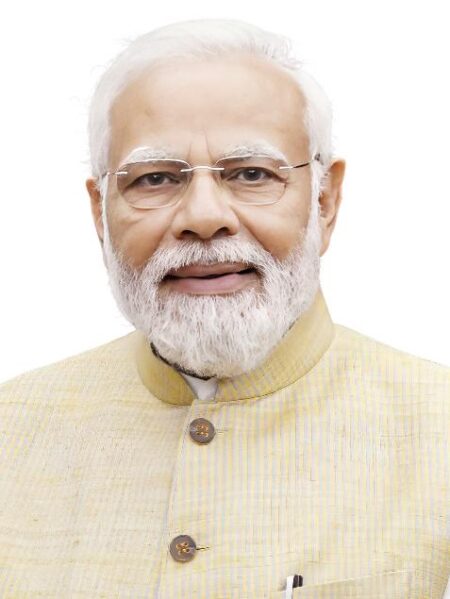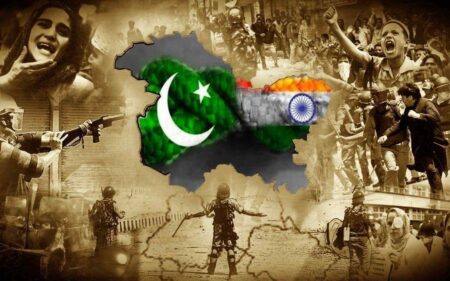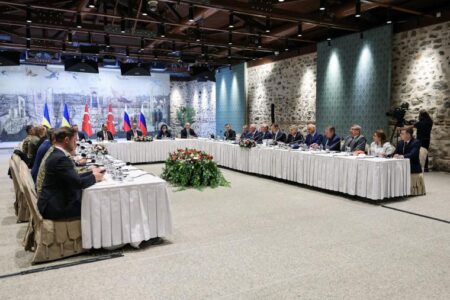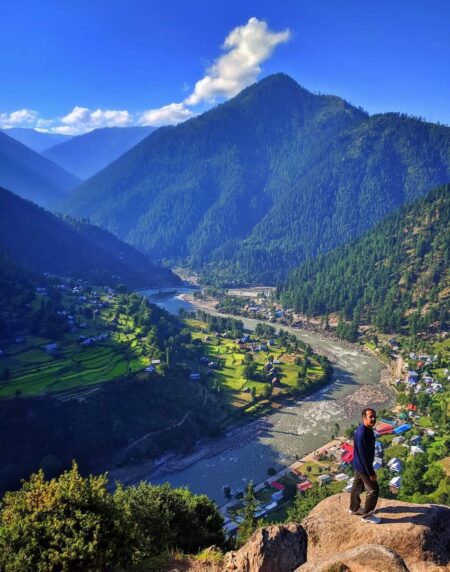Former President Trump’s daring threats to Greenland and Canada reveal mounting anxieties over Russia’s expanding Arctic shipping routes, casting a sharp spotlight on the fierce geopolitical battles transforming the rapidly changing northern frontier
Browsing: territorial disputes
In a captivating deep dive, The Economist unravels the complex aftermath of the India-Pakistan wars, revealing how, despite no clear victor emerging, these conflicts dramatically reshaped regional power dynamics and forged powerful new national identities
Former President Trump fiercely criticized the U.K.’s decision to return the Chagos Islands to Mauritius, using it as a powerful example to argue that the U.S. should take control of Greenland. He expressed these bold opinions in a recent interview with NPR
Europe is facing rising challenges in protecting Greenland amid soaring Arctic tensions. France 24 explores the daring strategies European nations are preparing to deploy to secure this crucial territory against growing geopolitical threats
In 2025, the China Coast Guard dramatically intensified its presence around Japan-controlled islands, hitting an all-time high. This bold move has escalated regional tensions and sparked heightened vigilance among Indo-Pacific defense forces, according to the Indo-Pacific Defense FORUM
The African Union and Somalia have fiercely condemned Israel’s recognition of Somaliland, branding it a bold challenge to Somalia’s sovereignty. This provocative move has sparked intense diplomatic tensions and unleashed widespread criticism throughout the region, underscoring long-standing territorial conflicts
China has fiercely condemned a Japanese official’s visit to Taiwan, urging Tokyo to fully respect its sovereignty. This tense moment comes as Taipei accelerates efforts to deepen connections with key regional allies, Reuters reports
Tensions between China and Japan continue to simmer, driven by deep-rooted historical grievances, ongoing territorial disputes in the East China Sea, and a rising wave of nationalism on both sides-making a swift resolution seem increasingly unlikely
Tensions skyrocket as China vehemently denounces Japan’s increased military backing for Taiwan, deepening the diplomatic rift. This escalating conflict raises urgent regional security alarms amid growing U.S. involvement
The Philippines has extended a warm invitation to Chinese President Xi Jinping to visit Manila, signaling a keen eagerness to deepen their relationship despite existing tensions. Meanwhile, Manila is actively pushing for a binding South China Sea code of conduct aimed at preserving peace and stability across the region
The US has urged ASEAN nations to take a strong stand against China’s territorial claims in the South China Sea, emphasizing the urgent importance of defending international law and preserving peace across the region, according to AP News
Russia has charged NATO with planning a military landing in Ukraine and an occupation of Moldova, ramping up tensions in the already volatile regional conflict, according to a recent Newsweek report
Japan’s evolving security strategy is boldly forging stronger regional partnerships amid escalating tensions. Yet, long-standing historical mistrust with neighboring countries still challenges the pursuit of a unified defense framework in East Asia
Kashmir’s enduring conflict between India and Pakistan has, perhaps unexpectedly, paved the way for China to enhance its presence in the region. As tensions escalate, Beijing has skillfully seized this opportunity to bolster its economic and strategic influence, weaving itself deeper into the fabric of regional dynamics
Taiwan’s Foreign Minister has taken a bold stand against China’s fluctuating position on Taiwan’s sovereignty, highlighting how this ongoing ambiguity reveals Beijing’s own uncertainty about the island’s identity as a nation. This tension not only fuels debates but also significantly influences the dynamics of the entire region
In a striking escalation, Russia has ramped up its military presence along the border with Finland, reinforcing its bases as tensions in the region continue to mount. This bold maneuver is sending ripples of concern among NATO allies, who are increasingly wary of the potential security ramifications for northern Europe.
In “Modi’s Escalation Trap,” The Atlantic delves into the delicate power dynamics shaped by India’s Prime Minister Narendra Modi. With tensions mounting alongside its neighbors, experts caution that a confrontational stance might trigger unforeseen repercussions and spark regional instability
The ongoing Kashmir crisis serves as a poignant reminder of the unresolved challenges stemming from the 1947 partition of India and Pakistan. With tensions continuing to simmer over territorial disputes, experts caution that this region remains a volatile flashpoint, illuminating the delicate balance of peace between these two nations.
In a dramatic turn of events, the talks between Ukraine and Russia in Istanbul wrapped up without a ceasefire agreement. Moscow remained firm on its demand for Kyiv to withdraw from four contested regions, underscoring the deep-seated tensions that continue to plague the conflict. These discussions revealed just how intricate and challenging the path to peace truly is.
Residents in Pakistani-administered Kashmir are increasingly on edge as fears of a military escalation with India loom large. Following a series of recent border clashes, the atmosphere is thick with anxiety, as locals worry they could be the first to bear the brunt of any renewed conflict. This growing unease has intensified their sense of vulnerability, leaving many to wonder what the future holds.




